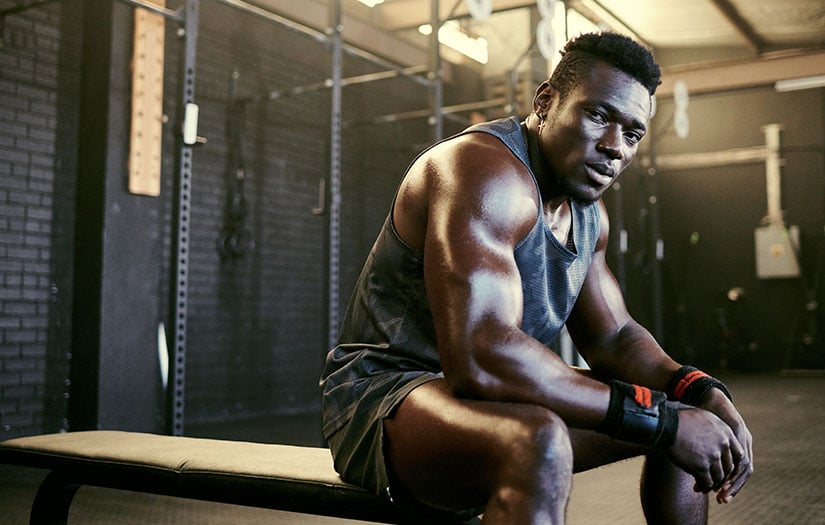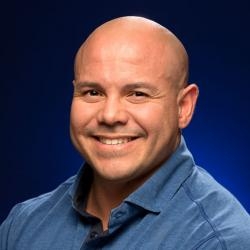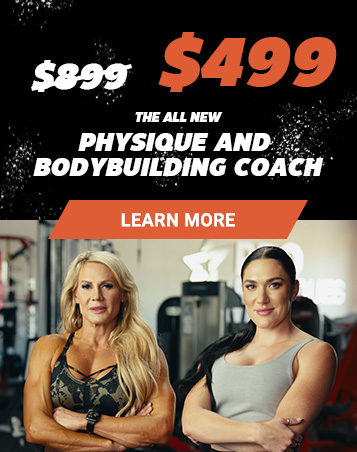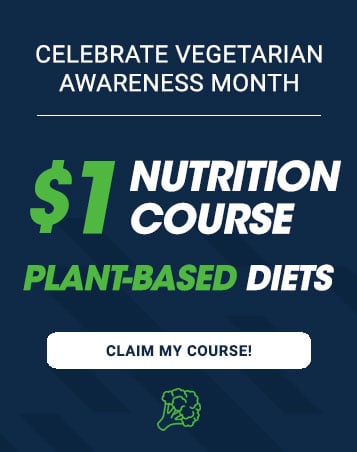It is common knowledge that successful bodybuilders have excellent muscularity, symmetry, proportion, and conditioning. In everyday terms, muscularity is defined as the sheer amount of muscle the athlete carries, symmetry is the balance between one side of the body compared to the other, proportion is the shape of individual muscle groups as related to other muscle groups to have appropriate balance and flow, and conditioning is low levels of body fat to maximize muscle definition.
While these are the major “nuts and bolts” of a successful competitor, bodybuilding is more than this. It is a hybrid of art and sport that requires attention to detail.
Indeed, legendary bodybuilder Arnold Schwarzenegger once said: “Good bodybuilders have the same mind that a sculptor does. If you analyze it, you look in the mirror and you say ok, I need a little bit more deltoids … so that the proportion is right, and you exercise and put those deltoids on, whereas an artist would just slap some clay on each side.”
Besides having the essential “nuts and bolts,” there are other important aspects of bodybuilding. Let’s break down what it means to be a bodybuilding coach in more detail.
Posers: The Good Kind
How the physique is displayed during mandatory poses, transitions between poses, and overall physical appearance such as the tan, cut/fit of the posing trunks, and the perfect amount of oil/gloss cannot be understated. It is this attention to detail in observing, analyzing, and improving the physique with the tools of exercise, nutrition, supplementation, and stage presentation that separates good coaches and competitors from the rest of the field. In most competitions, the nuances of these details are often the differences between winning and losing.
What Does a Bodybuilding Coach Even Do?
There are many things that a bodybuilding coach does, but educating clients is arguably the most important. Potential clients frequently seek help to reach their physique transformation goals, but education is critical to their success.
Unrealistic timelines to transform a physique safely and successfully are a recipe for disaster that may lead harm. While the world is full of overnight transformation promises, the reality is that developing a muscular, symmetrical, and proportional physique with striated muscle bellies and eye-popping veins in a safe manner requires patience, sacrifice, dedication, discipline, and hard work.
Besides educating clients, physique coaches also must perform various assessments (health, physique, fitness, etc.), design nutrition/exercise/supplementation programs, adjust interventions as needed, provide a balance of tough love and encouraging/motivational feedback, provide assistance and/or referrals for help with stage presentation (posing, posing attire, tan/oil, music, choreography), and other details such as federation(s) of where to compete, division(s) to compete in, registration, meal prep tips, travel tips, and more.
Reaching the Peak
In order to help clients reach to their physique goals, a bodybuilding coach needs to be a life-long learner with foundational knowledge in anatomy, physiology, biomechanics, nutrition, metabolism, supplementation, muscle hypertrophy and cardiovascular exercise programming, health/physique/fitness/nutrition assessments, and principles of coaching and behavior modification.
While the foundational knowledge is important, keeping up with updates in physique and bodybuilding science is also essential since the science in this space is rapidly evolving; bodybuilding and physique science is relatively new as compared to other areas of exercise science. Critical thinking skills are also an invaluable asset for a coach to be successful.
One Size Does Not Fit All
There is no “one size fits all” approach for every client to succeed. Thus, successful bodybuilding coaches must be able to observe, assess, analyze, and adjust training/nutrition/supplementation variables on the fly to ensure progress remains consistent and headed in the right direction within the desired reasonable timeline. Other external factors must also be considered when making decisions on program changes such as client adherence, health, and safety.
When looking for a bodybuilding coach, there are various considerations that prospective clients should look for. Coaches should have a minimum level of formal education and training in the foundational knowledge areas mentioned previously.
The human body is a complex system, and knowledge in these areas can help coaches understand how specific interventions can affect the body. Besides reaching physique goals, your client’s mental and physical health must also be taken into consideration. I don’t know about you, but I feel more comfortable knowing that my physician went to medical school and passed a board exam, don’t you? Using a similar analogy wouldn’t you feel more comfortable knowing that you coach had some basic/foundational level of training as related to the human body and how it works to help you reach your goals safely?
More Than the Minimum
In addition to a minimum level of education and training, it can be valuable for a bodybuilding coach to have had experience with the bodybuilding process as a competitor. This experience provides the coach with first-hand experience of the trials and tribulations that a prospective competitor will undergo.
Unfortunately, however, thousands of self-proclaimed “bodybuilding coach experts” only rely on their personal bodybuilding experience to create bodybuilding nutrition/exercise/supplementation programs for their clients. If this is the case, I encourage individuals to seek the help of another coach as personal bodybuilding experience simply does not provide enough knowledge of the human body to design and customize specific exercise/nutrition/supplementation programs geared specifically to fit the needs of the individual in a safe manner.
The Time and Effort Behind Bodybuilding & Physique Training
Bodybuilding athletes that invest time learning the foundational knowledge of anatomy, physiology, biomechanics, nutrition, metabolism, etc. will likely see significant improvements in their own physiques by gaining “behind the scenes” knowledge as to why specific exercises, exercise techniques, or nutritional interventions are selected to reach specific goals.
This foundational knowledge can also teach a variety of evidence-based interventions to bodybuilding athletes that they may have not tried before that will enable them to decipher what works best for them. Additionally, programming can have a more methodical/organized approach as opposed to a hap-hazard/unorganized approach.
On the other side of the equation, learning by doing also provides bodybuilding athletes the ability to better understand the concepts being taught in the foundational knowledge coursework.
Bringing It Together
In summary, the responsibilities of a bodybuilding coach go beyond building “cookie cutter” programs that are not customized to everyone. While having practical experience as a bodybuilding competitor can be helpful to provide you with first-hand experience of the trials and tribulations of competing, this is not enough to be considered a competent coach.
This is regardless of whether you competed as an amateur or as a high professional level. Having formal education and training in the areas of anatomy, physiology, biomechanics, nutrition, metabolism, supplementation, muscle hypertrophy and cardiovascular exercise programming, health/physique/fitness/nutrition assessments, and principles of coaching and behavior modification are important to be a successful coach.
Beyond this, attention to detail in other areas of bodybuilding such as stage presentation, bodybuilding federations, bodybuilding divisions, and tips on meal prep and traveling to competitions can prove to be invaluable to future clients.





-1.png?width=723&name=MicrosoftTeams-image%20(4)-1.png)











